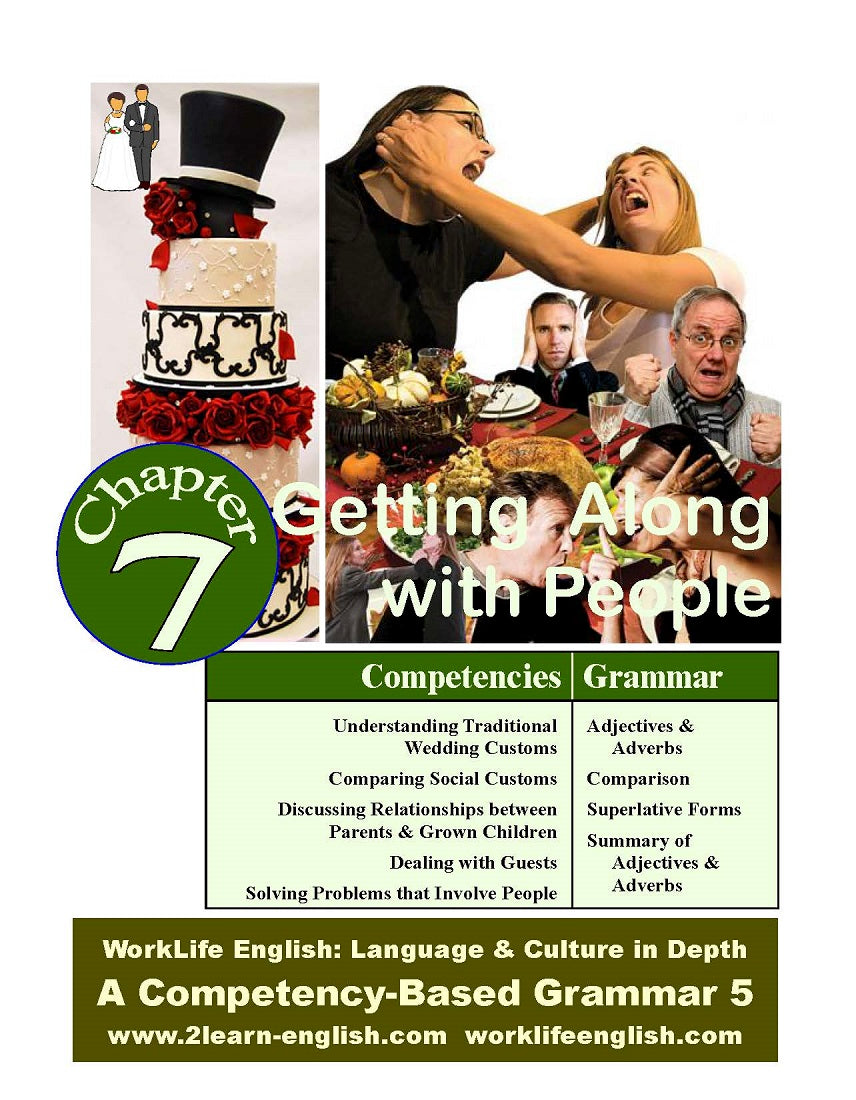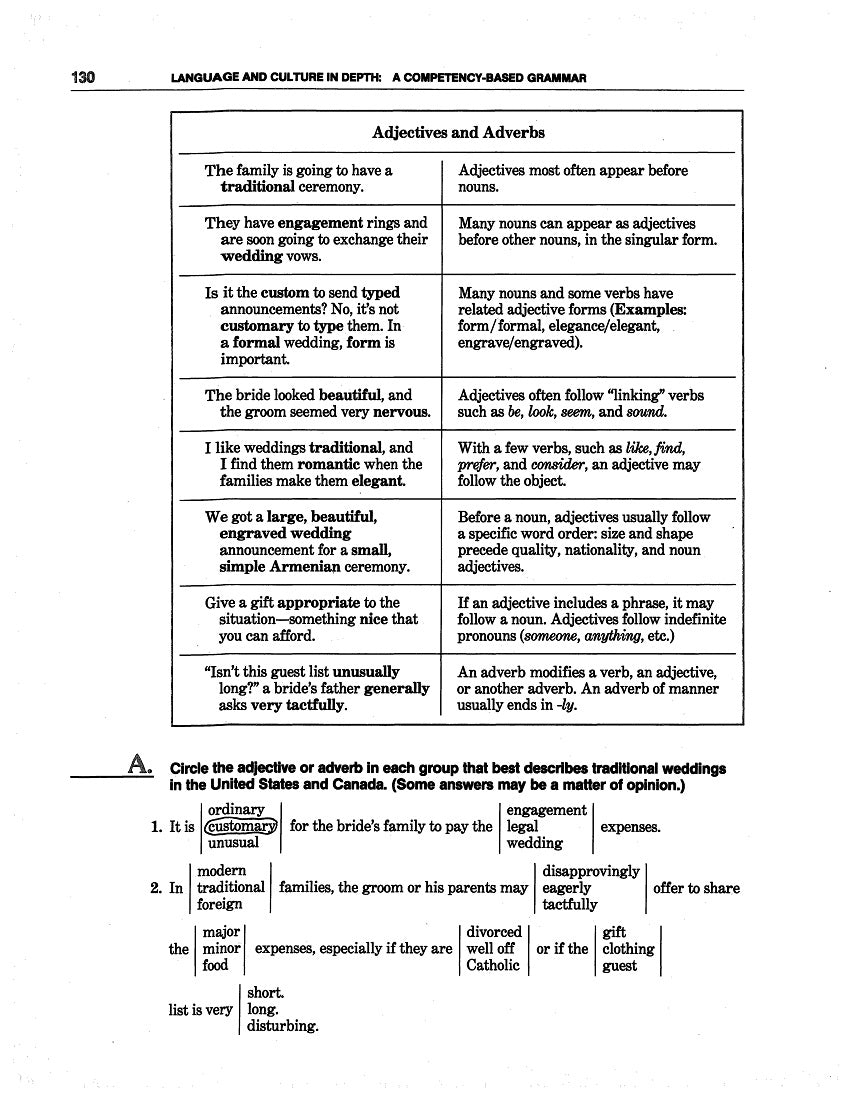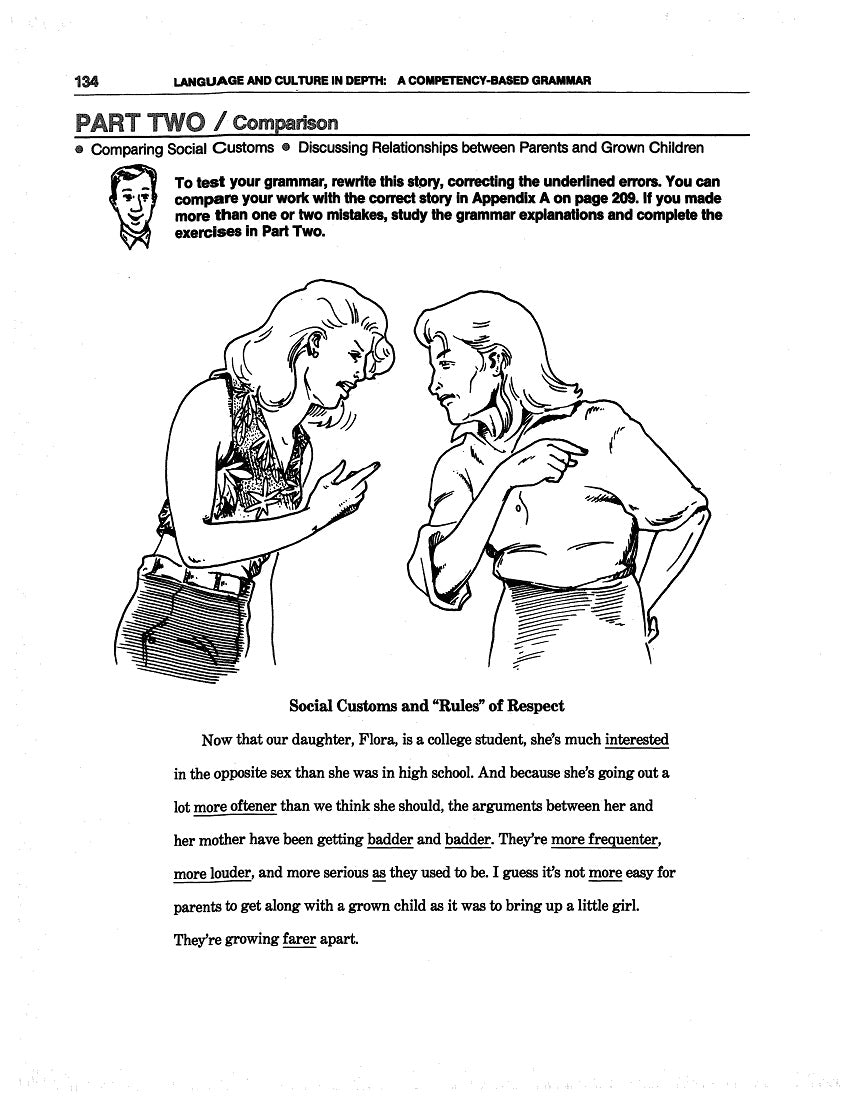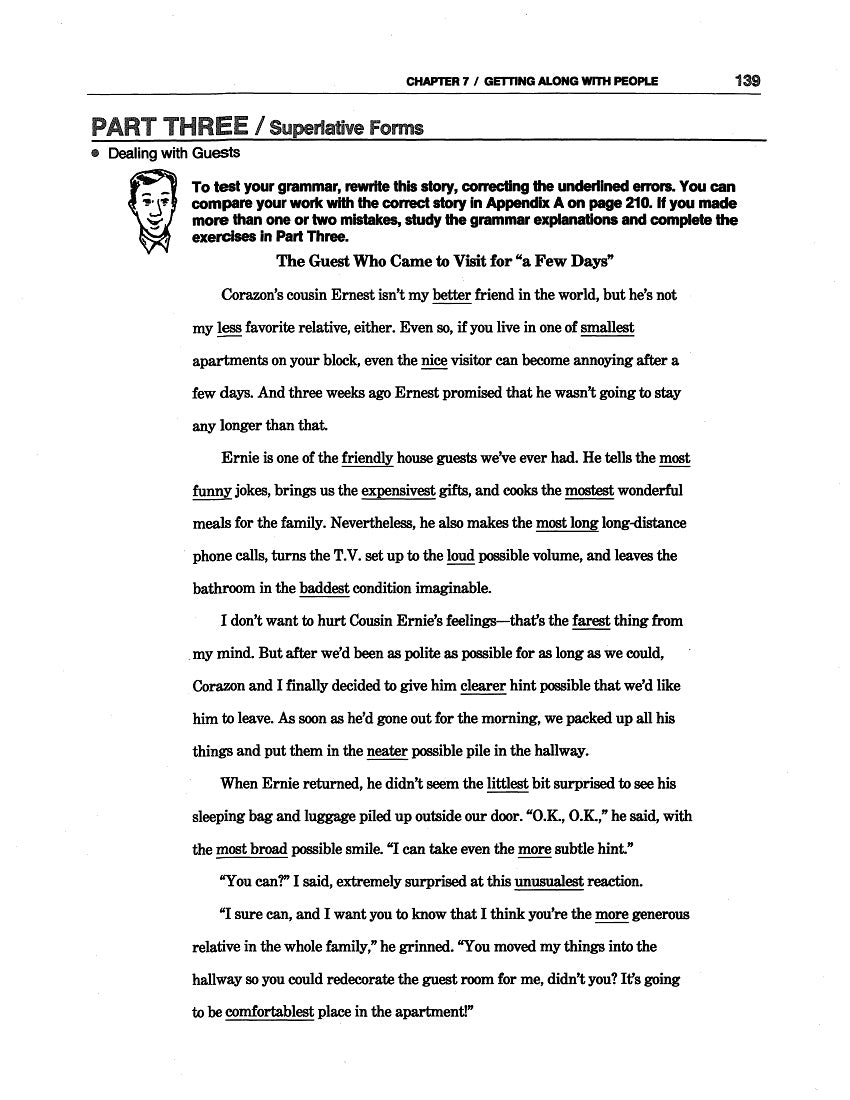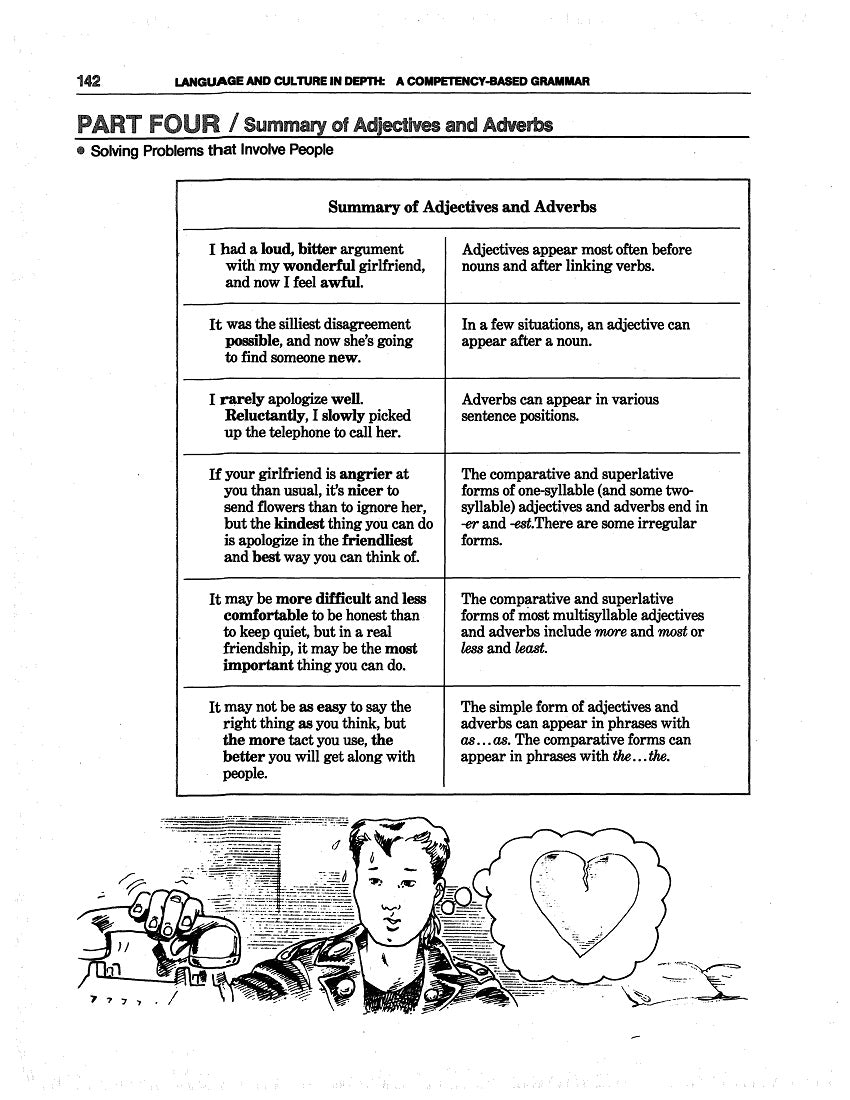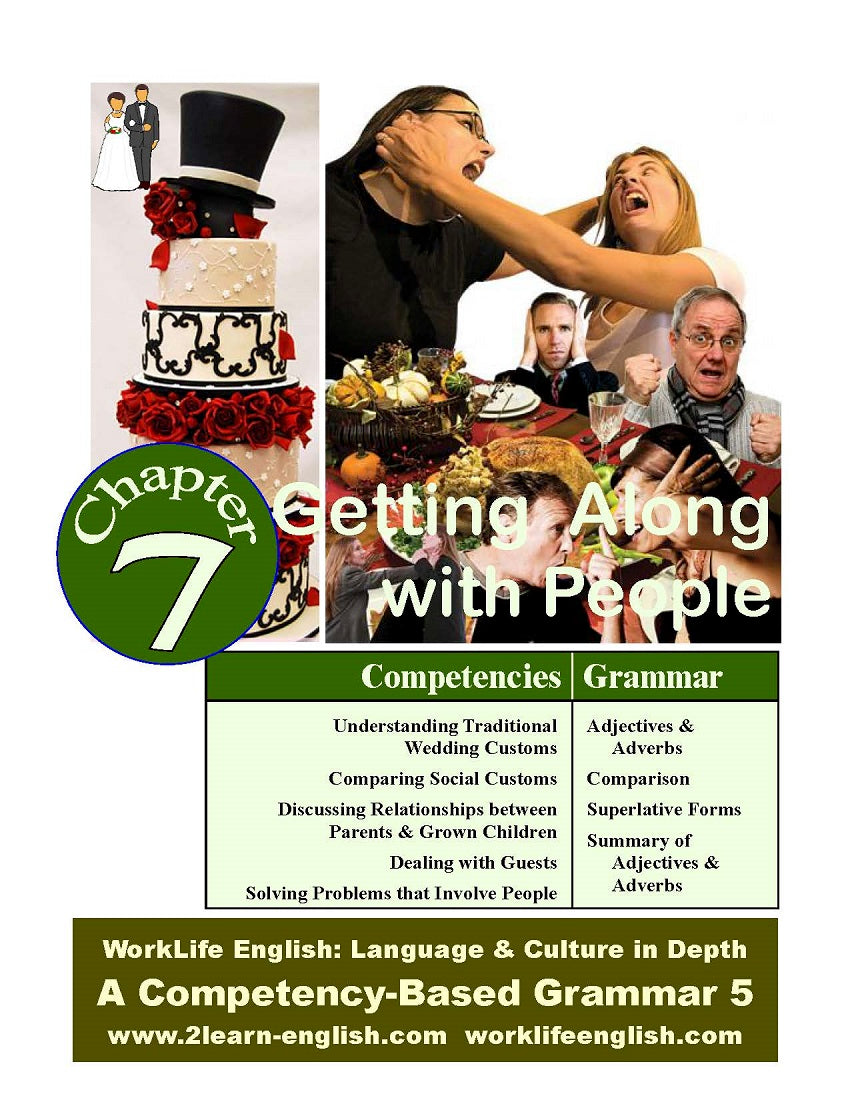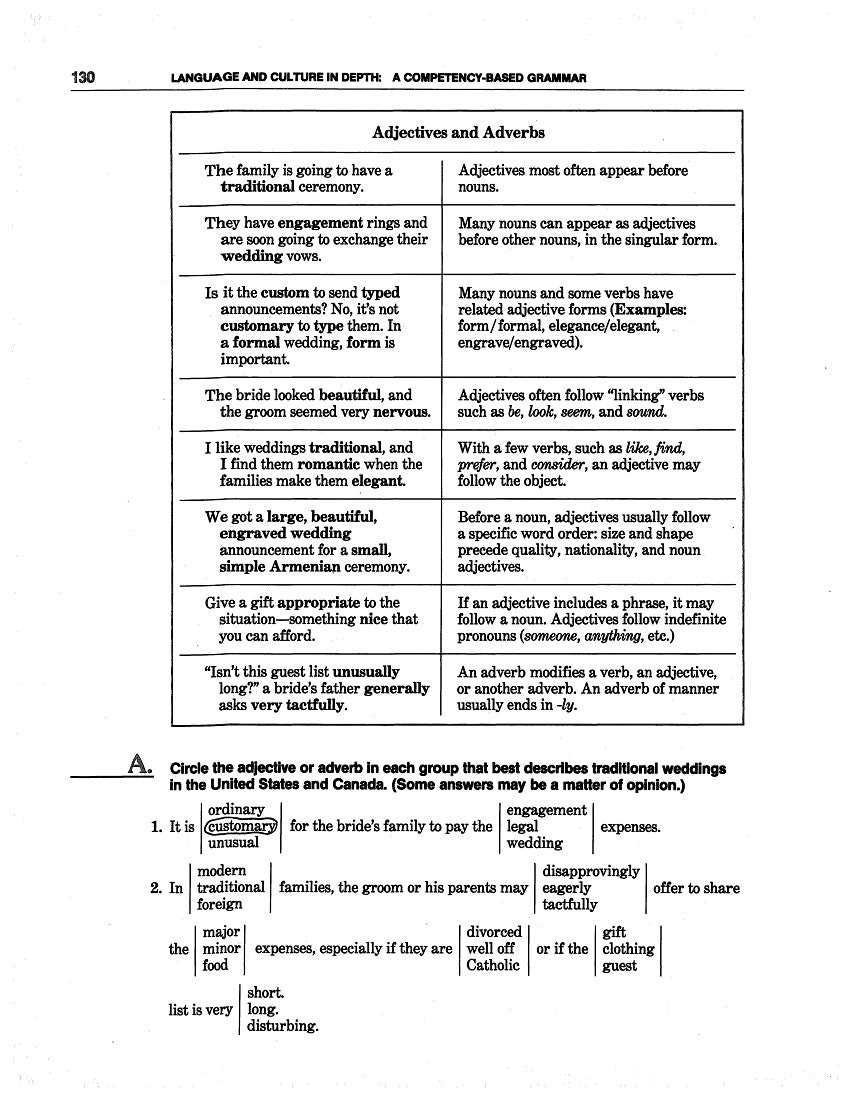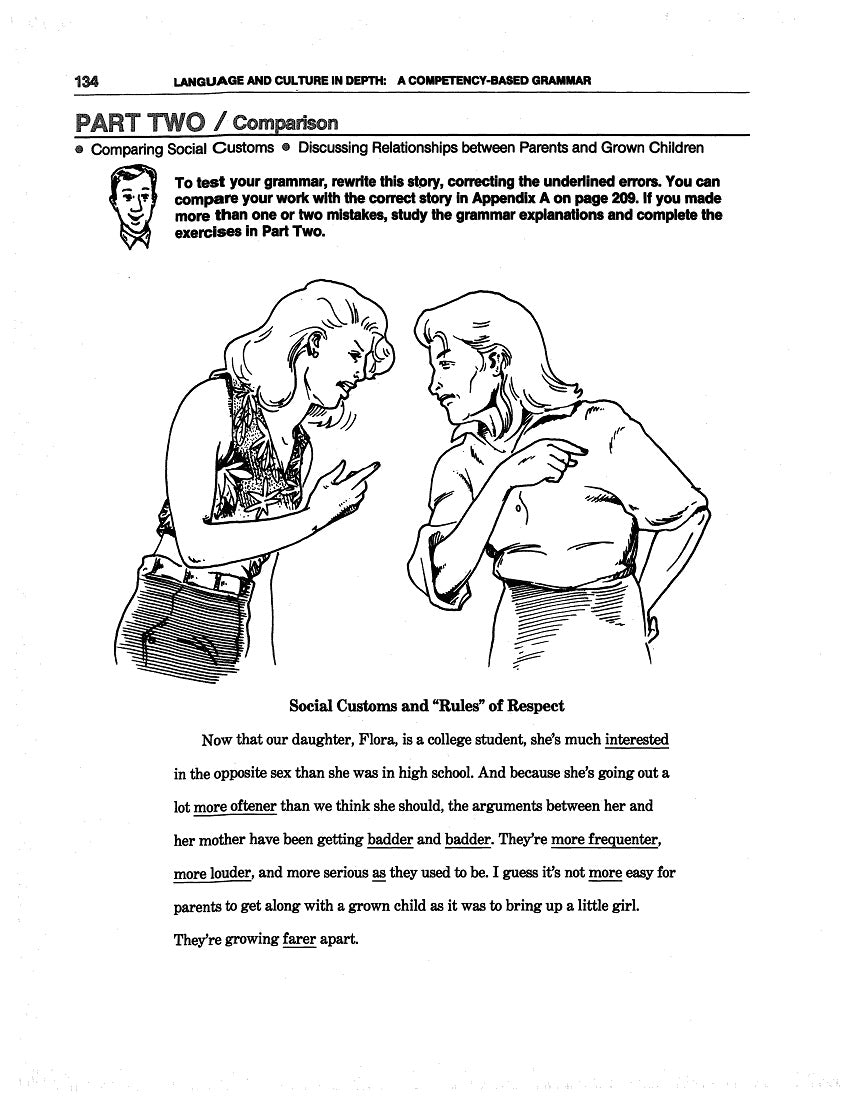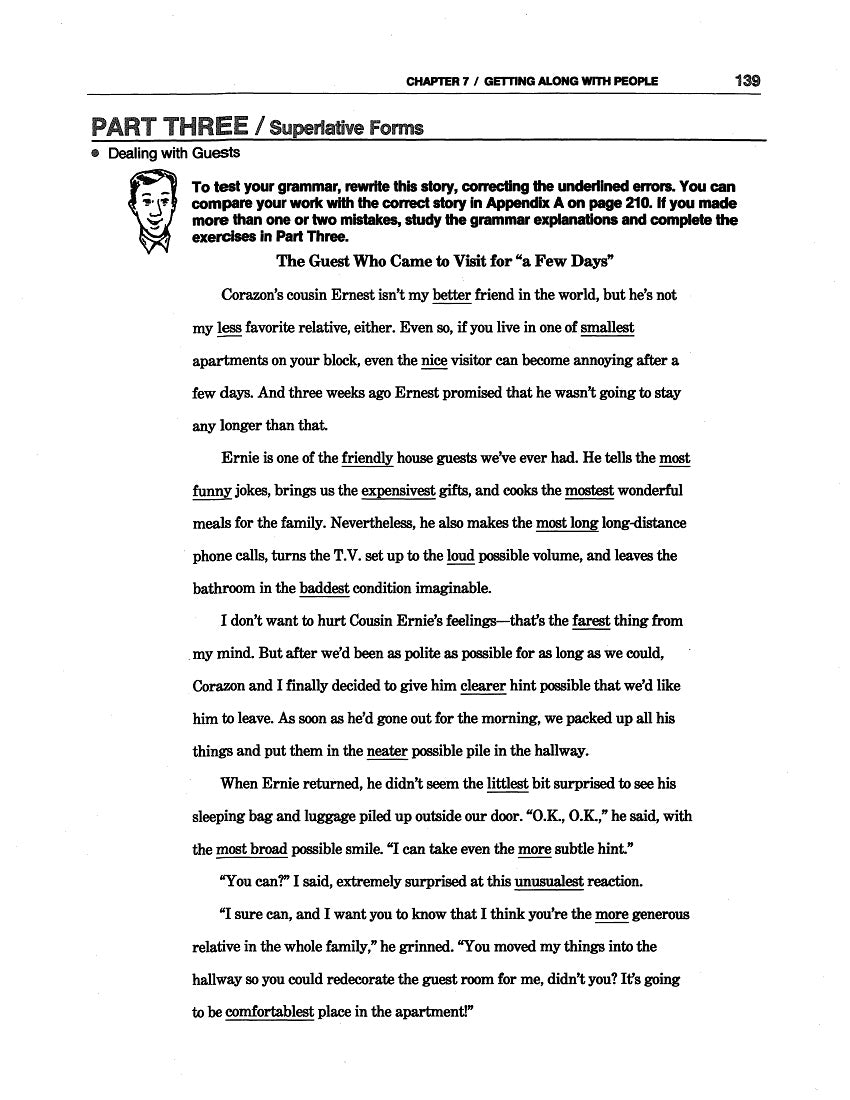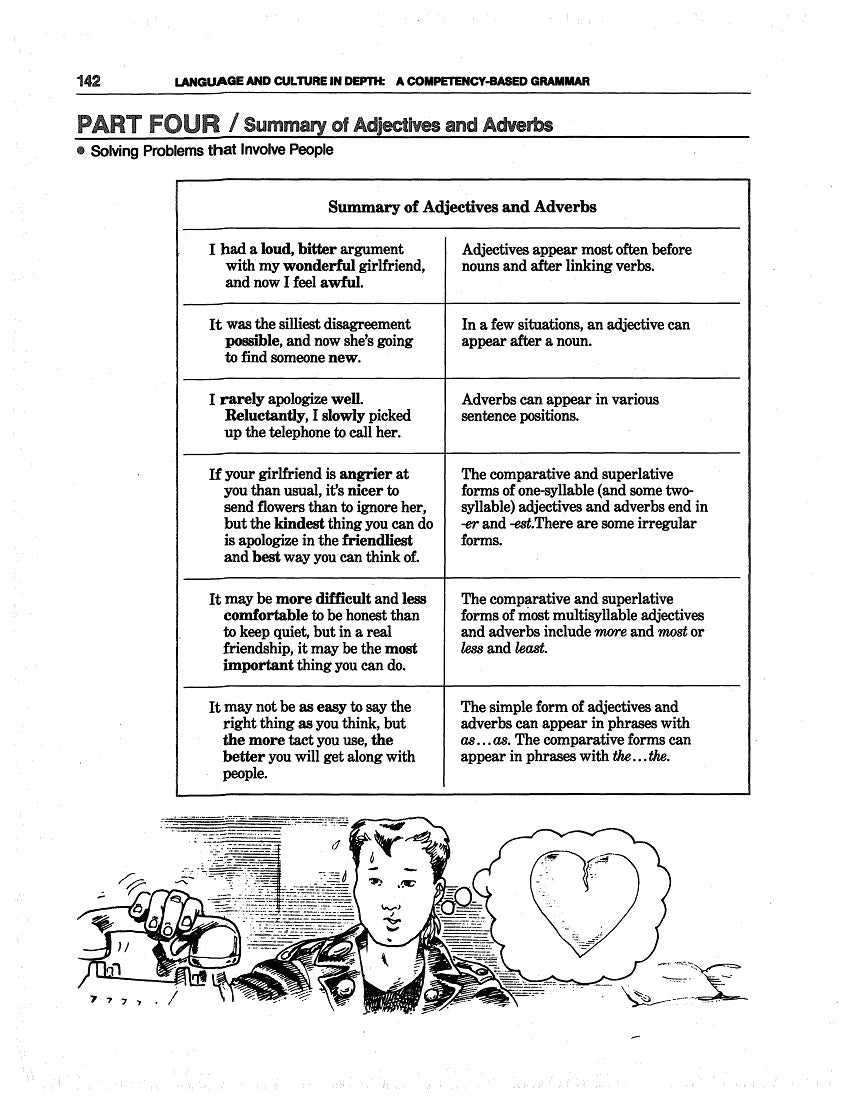1
/
of
5
Work/Life English
D-12.09 Use Comparative & Superlative Adjectives / Adverbs in Various Sentence Contexts
D-12.09 Use Comparative & Superlative Adjectives / Adverbs in Various Sentence Contexts
Regular price
$4.00 USD
Regular price
Sale price
$4.00 USD
Unit price
/
per
Part One: Adjectives & Adverbs + Part Two: Comparison + Part Three: Superlative Forms + Part Four: Summary of Chapter 7 (“Getting Along with People”) of WorkLife English Grammar 5: Language & Culture in Depth, pages 127-144
18 pages
Who It’s For: Teachers, Helpers, & Learners at Intermediate to Advanced Levels of Grammatical English-Language Proficiency
Why It’s Useful: Its “Competencies” are “Understanding Wedding Customs,” “Comparing Social Customs,” “Discussing Relationships between Parents & Grown Children,” “Dealing with Guests,” and “Solving Problems That Involve People.” After presenting and practicing eight patterns and uses for the “positive degree” of adjectives/adverbs, the Chapter moves to as . . . as comparisons, one-word comparatives, and comparative forms with more and less. Next come analogous rules for superlatives. The download ends with a chart, exercises, and activities that sum it all up.
What You’ll Do:
[1] To “test your grammar” in Part One, correct the underlined errors in the Story “The Wedding.” Understand how (noun-)adjectives can appear before (or after) nouns, after Iinking verbs, and as complements. Review their order in noun phrases and positions of adverbs of manner. In Exercises A-C, practice these concepts. Then in *D, use what you’ve learned to describe wedding customs in various cultures.
[2] In a Part Two Story called “Social Customs & ’Rules’ of Respect,” test your knowledge of the positive I+ comparative degrees of adjectives and adverbs. Learn what there is to know about forming comparatives for use in sentences, including “doubled” ones. “Prove” your skills in cultural comparisons of “social rules.”
[3] While focusing on forms (regular spelling + irregulars) and contextualized uses of superlatives, follow comparable procedures to correct and learn from a Part Three Story, “The Guest Who Came to Visit for ‘a Few Days” with relevant exercises.
[4] In Part Four, review and summarize what you know about the three “degrees” of describing words in context. Finally, use your enhanced grammar and style abilities to discuss and solve personal or social problems.
Couldn't load pickup availability
